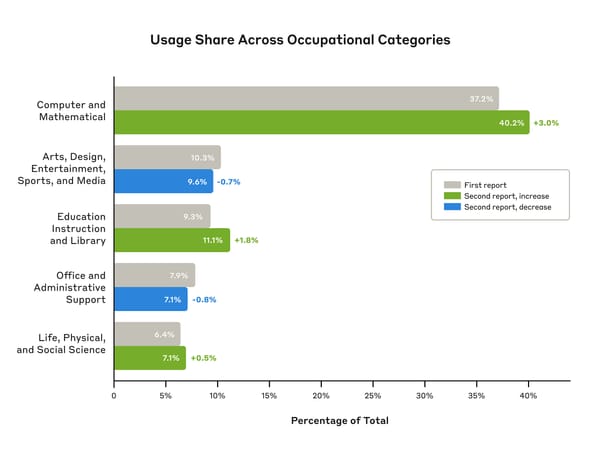Twitter braces for layoffs
Behind the scenes at the wildest tech takeover ever

Since Thursday afternoon, when Elon Musk closed his $44 billion acquisition of Twitter and dramatically fired four of its top executives, employees at the company have awaited a message from their new leaders to explain what might happen next. What’s changing, and what’s staying the same? Who will be laid off, and when?
As of press time, though, no such message has been delivered to the company’s 7,500 or so employees. And with Musk reportedly intent on making cuts before Tuesday, when many employees are set to receive new stock grants, it appears that any such decisions will come down to the wire.
The process has been frightening and disorienting, according to conversations with eight employees today and over the weekend. In the absence of official communications, workers have been hunting for clues in Slack and gathering in private Discords to share the latest rumors.
In Slack, one employee shared a note they’d received from Leslie Berland, Twitter’s chief marketing officer. “It’s very destabilizing I know and the press swirl is making everything worse,” Berland wrote. “Planning is happening and is moving as quickly as possible but it’s not complete. Two things I wanted to make sure you all saw is that Elon has debunked that he was ever planning a 75% layoff and stated it’s false that he is or was trying to rush a layoff before a Nov. 1 vest. Neither of those things are true.”
The Washington Post reported that layoffs would hit roughly a quarter of the staff, heavily impacting teams including sales, product, engineering, legal, and trust and safety.
The turmoil has divided the company into roughly two camps: those waiting nervously to see whether they still have a job after those cuts land, and those who are frantically working to ship new features under a threat of being fired if they don’t.
One thing that made people nervous was the instruction on Friday afternoon that engineers print out the last 30 to 60 days of code they had written, as Platformer was the first to report. It was part of a set of measures Musk and his team have undertaken in an effort to identify Twitter’s highest and lowest performing employees as a precursor to layoffs.
Musk has brought more than 50 employees from Tesla into Twitter to help with the transition, CNBC reported. One employee we spoke with said they had received a call from a Tesla engineer late at night who quizzed about their team and which engineers at the company are most highly regarded.
Frustration over the lack of information has spilled into the company’s Slack channels. One employee wrote this:
since no leadershippy type appears willing or interested in filling the void: if you're feeling bleak and dismayed right now, just want you to know you're not alone. this sucks.
want to particularly acknowledge our colleagues on visas and others with precarious employment needs and relationships.
wishing everyone a smooth and quick journey to job stability and security, wherever we all land.
In other Slack channels, employees are sharing contact information in case they suddenly lose access to their communications, another employee told us.
“It’s absolutely Hunger Games, but everyone in the game is trying to help each other,” the employee said.
Musk has pressed engineers to work on at least two major projects, and to complete them within days or weeks. One is changes to Twitter Blue that would require users to pay to retain their verification badges, possibly as much as $20 a month. The second, which Axios first reported today and which we can confirm, is a plan to revive the short-form video app Vine, either as a standalone product or part of the core Twitter app. Our colleague at The Verge Alex Heath reported that, in the case of changes to Blue, the features must ship by Nov. 7 or the team will be fired.
The Vine project has generated moderate enthusiasm so far, we’re told. More than a dozen engineers volunteered to be part of the project after Musk gave it the go-ahead Sunday night.
Other employees are being encouraged to go build something — anything — and show it off to Musk. In one Slack message we saw, an engineering director urged his team to come up with new products and features and share them directly with their new CEO. “At best: you will get some feedback. You may be asked to ship it asap,” the director wrote. “At worst, you will be asked to stop and work on something else. Even in this case, at least you worked on something you love.”
“Please don’t wait for an opportunity to be handed to you,” the director added.
Similarly, on Monday Behnam Rezaei, senior director of software engineering at Twitter, sent a note to his team acknowledging “big changes” were coming. "I think most important change is going to be cultural change," he said, according to a copy of the email obtained by Platformer. “Some good, some bad.”
Rezaei tried to rally the troops, telling engineers to focus on shipping code as quickly as possible:
So if you ask what should I do now: do good engineering work. Write code. Fix bugs, keep the site up. I know the criteria for being at Twitter is that. It’s not working on a fancy project for Elon. The good culture change is, it’s shipping and delivering. I encourage you to rotate more on coding and shipping, and less on documentation, planning, strategy etc. If you want to be in a “special” group this week, code and ship 5x as [much as] before. Building what Elon asks or thinks sexy is not the criteria. Being impactful and changing product and helping our users is the criteria. So you don’t need commands from me. You are all software engineers. You know what needs to be written and improved. Do it. You are in charge.
Not everyone is upset about the heightened urgency at the company, we’re told. Twitter has long suffered from a slow pace of product development; some employees we’ve spoken to have found Musk’s breakneck approach to product development at least somewhat refreshing.
But Musk’s attention can be unnerving, too. One employee we spoke with said they had mixed feelings about working on a project Musk is known to be focused on, such as Vine.
“Under normal times I would be excited to work on this,” they said. “But this feels like asking for the eye of Sauron to gaze upon you.”
Elsewhere in Twitter:
Musk tweeted, then deleted, a homophobic conspiracy theory about the attack on Paul Pelosi.
How the cursed deal finally got sealed. A look at the company’s dicey financials. How Jack Dorsey saved Musk $1 billion. A relatively small number of trolls flooded the site with racial slurs in an effort to make it look like Twitter’s content policies changed (they haven’t). Some users are flocking to other platforms in the wake of the takeover. Musk takes Manhattan.
The Wire
Two major escalations in The Wire saga over the weekend:
First, The Wire filed a police complaint against Devesh Kumar, the former researcher behind much of its Meta and Tek Fog reporting. The publication accused Kumar of fabricating documents, emails, and videos “with a view to damaging The Wire and its reputation.”
Next, the Delhi police searched The Wire’s office, as well as the homes of four editors and journalists who were involved in the Meta investigation. The raids came in connection with a lawsuit filed by Amit Malviya, head of IT for the BJP. The police seized four devices. The Wire says it is fully cooperating.
Just an extremely disappointing story here from start to finish.
Governing
- Federal officials have spent months negotiating a national security agreement with TikTok, but the deal is in danger of getting blown up if Republicans retake Congress or the Chinese government rejects the new set of proposals. (Drew Harwell and Elizabeth Dwoskin / Washington Post)
- TikTok banned campaign ads three years ago, but politicians are still flocking to the app. Nearly 30 percent of all major-party candidates in Senate races have TikTok accounts. (Cat Zakrzewski, Naomi Nix and Taylor Lorenz / Washington Post)
- The US government is trying to police disinformation by flagging content on Facebook and Instagram and requesting that it be suppressed via a special Facebook portal that requires a government or law enforcement email to use. (Ken Klippenstein and Lee Fang / The Intercept)
- The European Union’s Digital Markets Act goes into effect tomorrow, forcing Amazon, Google, and Meta to make their platforms more open and interoperable in 2023. (Khari Johnson / Wired)
- The Indian government is moving forward with a proposal to set up a grievance committee to oversee the content moderation decisions of the big tech companies, despite pushback from Meta, Google, and Twitter. (Manish Singh and Jagmeet Singh / TechCrunch)
- A secretive system called SIAM might be behind the Iranian government’s clampdown on digital communications, according to newly leaked documents. The system allows the government to break the encryption of phone calls and track citizens’ movements. (Sam Biddle and Murtaza Hussain / The Intercept)
- The White House is bringing together a host of nations and companies for a two-day summit on how best to combat ransomware attacks. (Associated Press)
Industry
- Big tech companies are tightening their budgets as they battle high inflation and rising interest rates. Investors in Apple, Amazon, Microsoft, Meta, and Alphabet have lost a combined $3 trillion this year. (Meghan Bobrowsky / Wall Street Journal)
- Also: The 20 richest tech billionaires have collectively lost nearly half a trillion dollars this year amid the stock market’s sharp tumble. (Alyssa Lukpat / Wall Street Journal)
- Mental health providers say young people are diagnosing themselves with mental illnesses after researching symptoms on TikTok. (Christina Caron / New York Times)
- YouTube announced a redesign to split video content into three different tabs on all channel pages: one for long-form content, another for YouTube Shorts, and a third for live videos. (Sarah Perez / TechCrunch)
- A backlash against generative AI is brewing in Japan and South Korea as anime and manga artists speak out about copyright and theft. (Andrew Deck / Rest of World)
- Google acquired Alter, an AI avatar startup that used to be called Facemoji, for roughly $100 million. Oh so Google is allowed to buy companies. (Manish Singh / TechCrunch)
- Dogecoin rallied 150 percent in 4 days thanks to investor excitement about the Elon Musk Twitter deal, but the price could drop 60 percent by the end of this year. (Yashu Gola / Coin Telegraph)
Those good tweets
The scariest thing about Halloween is that rent due at midnight
— 🦋 🦇 (@simplylay) 11:16 PM ∙ Oct 30, 2022
now jair bolsonaro can finally focus on his life’s passion: contracting and being hospitalized for the novel coronavirus
— rax ‘leads with her crotch’ king (@RaxKingIsDead) 11:36 PM ∙ Oct 30, 2022
New Black Panther????
— gus 🦇 (@Guslivesagain) 1:41 AM ∙ Oct 31, 2022
— Dont Show Your Cat (@DontShowYourCat) 3:39 PM ∙ Oct 31, 2022
Talk to us
Send us tips, comments, questions, and layoff notices: casey@platformer.news and zoe@platformer.news.






